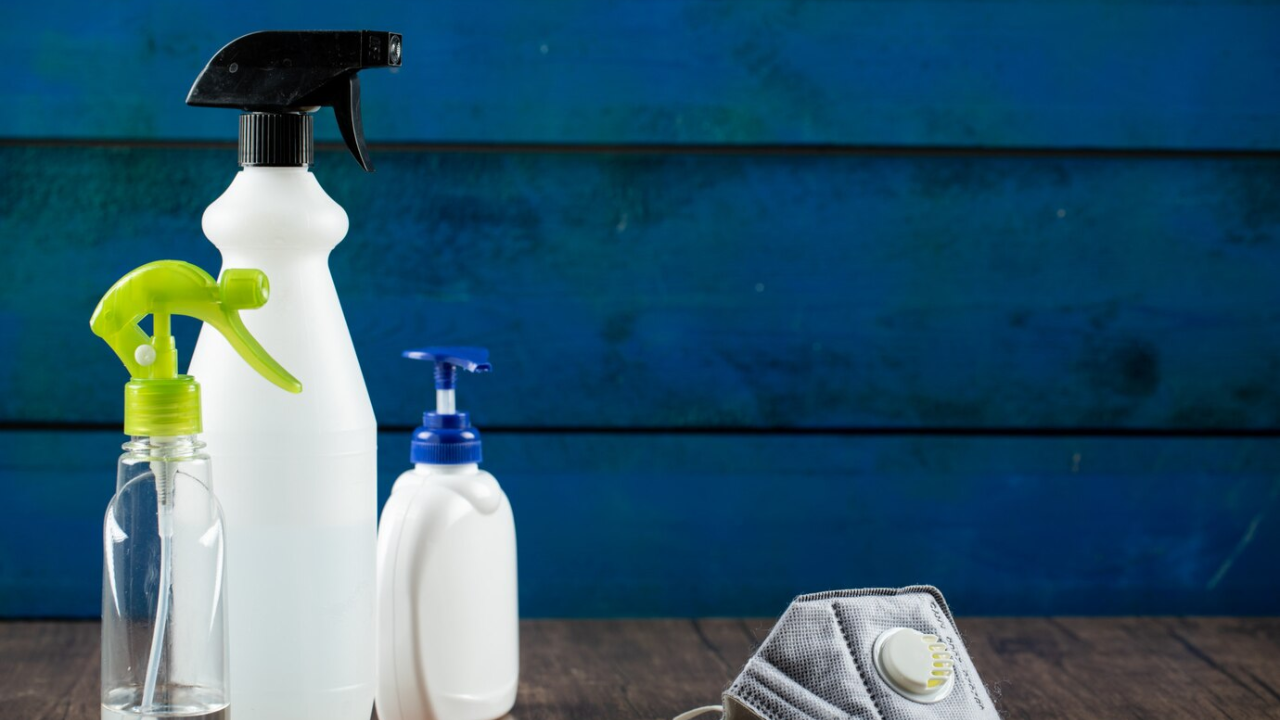Blog detail

December 06, 2024
by Nanzpharma
Protect Your Patients: Top Healthcare Disinfectant Solutions You Need
In healthcare settings, maintaining a sterile and hygienic environment is essential to prevent infections and safeguard patient health. The use of effective disinfectant solutions plays a pivotal role in reducing the risk of healthcare-associated infections (HAIs). By choosing the right products and understanding their applications, healthcare providers can ensure a higher standard of safety. Importance of Disinfectants in Healthcare Disinfectants are chemical agents designed to eliminate or significantly reduce harmful microorganisms on surfaces, equipment, and skin. In healthcare facilities, where patients are vulnerable to infections, disinfectants are a critical line of defence. Effective disinfection practices reduce the spread of pathogens and protect both patients and healthcare workers from cross-contamination. Surface Disinfectants: Keeping High-Touch Areas Safe Surfaces in healthcare facilities, especially high-touch areas such as bed rails, door handles, and medical equipment, are common sources of infection. Surface disinfectants help maintain cleanliness and prevent the transfer of pathogens. 1. Alcohol-Based Disinfectants Alcohol-based disinfectants, such as those containing isopropanol or ethanol, are widely used due to their quick action and effectiveness against bacteria, viruses, and fungi. These solutions evaporate quickly, leaving no residue, making them suitable for non-porous surfaces. 2. Quaternary Ammonium Compounds (QACs) QACs are versatile disinfectants commonly used on walls, floors, and furniture. They provide long-lasting protection and are effective against a wide range of microorganisms. Their non-corrosive nature makes them ideal for use on delicate surfaces. 3. Hydrogen Peroxide-Based Disinfectants Hydrogen peroxide-based solutions are known for their broad-spectrum efficacy and environmentally friendly nature. They work by releasing oxygen radicals, which effectively eliminate pathogens without leaving harmful residues. Hand Hygiene Products: A Key to Infection Control Proper hand hygiene is a cornerstone of infection prevention in healthcare. The right disinfectant products for hand hygiene ensure effective pathogen removal while being gentle on the skin. 1. Alcohol-Based Hand Sanitisers Alcohol-based hand sanitisers are a quick and effective way to reduce microbial load on the skin. Formulated with moisturisers, these products minimise dryness and irritation, ensuring frequent use by healthcare workers. 2. Antiseptic Hand Wash Solutions Antiseptic hand washes containing active ingredients like chlorhexidine or iodine provide a thorough cleansing option. These are ideal for pre-surgical preparations or situations requiring higher-level hygiene. Disinfectants for Medical Instruments: Precision and Safety Medical instruments, especially reusable ones, require rigorous disinfection to ensure patient safety. High-level disinfectants are essential for sterilising these tools. 1. Glutaraldehyde Solutions Glutaraldehyde-based disinfectants are commonly used for heat-sensitive instruments such as endoscopes. These solutions provide high-level disinfection, ensuring that equipment is safe for reuse. 2. Peracetic Acid Disinfectants Peracetic acid is a powerful oxidising agent used for sterilising surgical instruments. Its rapid action and compatibility with various materials make it a preferred choice for critical disinfection needs. Air Disinfection: Eliminating Pathogens in the Atmosphere Airborne pathogens can pose a significant risk in healthcare facilities, particularly in operating theatres and isolation wards. Air disinfectants help reduce microbial contamination in the environment. 1. UV-C Light Systems UV-C light systems use ultraviolet radiation to inactivate microorganisms in the air. These systems are effective for maintaining sterile environments in critical care areas. 2. Aerosol Disinfectants Aerosolised disinfectants containing hydrogen peroxide or quaternary ammonium compounds are used to sanitise air and surfaces simultaneously. These solutions are particularly effective in confined spaces. Specialised Disinfectants for Critical Areas Certain healthcare environments, such as intensive care units (ICUs) and neonatal wards, require specialised disinfectants to address the unique risks present in these settings. 1. Chlorine-Based Disinfectants Chlorine-based solutions are used in areas where a high level of microbial reduction is necessary, such as operating theatres and emergency rooms. These products are effective against a wide range of pathogens, including spores. 2. Povidone Iodine Solutions Povidone iodine is a trusted antiseptic for preoperative skin preparation and wound care. It is also used to disinfect surfaces and equipment in critical care areas. Choosing the Right Disinfectants for Your Facility Selecting disinfectants for healthcare facilities involves considering factors such as efficacy, safety, and compatibility with various surfaces and equipment. It is essential to choose products that meet regulatory standards and are proven to be effective against a broad spectrum of pathogens. Healthcare providers should also ensure that staff are adequately trained in the proper use of disinfectants to maximise their effectiveness. Prioritising Hygiene for Patient Protection Disinfectants are an indispensable part of infection control in healthcare facilities. From surface disinfectants to air sanitisation solutions, selecting the right products is essential for maintaining a safe and sterile environment. For businesses seeking reliable and high-quality disinfectant solutions, Nanz Med Science offers a range of products designed to meet the rigorous demands of healthcare facilities. With their expertise, healthcare providers can enhance patient safety and uphold the highest standards of hygiene.

